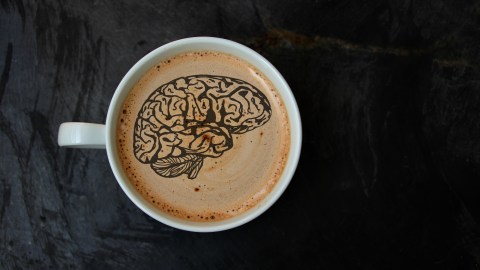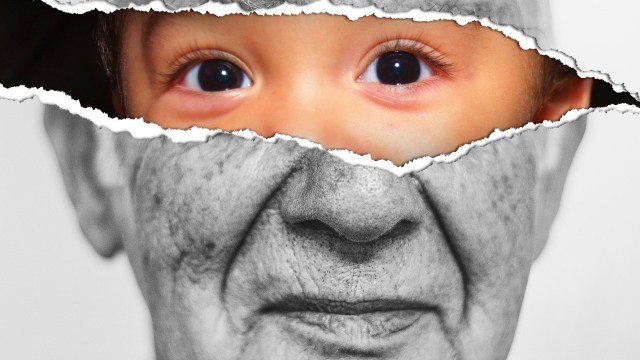Daily caffeine intake temporarily alters your brain structure

- Caffeine is the most widely used psychoactive drug in the world.
- Animal studies suggest that caffeine has neuroprotective effects, and can reverse the cognitive decline associated with age, chronic stress, and neurodegenerative disease, but human studies have shown mixed results.
- A new study shows that caffeine may cause a very slight and temporary decrease in gray matter volume, but the effect of this (if any) remains unknown.
Caffeine is the most widely used psychoactive drug in the world, consumed by billions of people every day in the form of tea, coffee, and energy drinks. It is commonly consumed to boost alertness and focus.
On the flip side, coffee is widely believed to interfere with sleep, and sleep deprivation is known to reduce brain volume and impair cognitive function. Is it possible that caffeine consumption somehow changes the structure of your brain?
Caffeine on the brain
That’s the question Yu-Shiuan Lin of the University of Basel and her colleagues set out to answer, and their hypothesis was that daily caffeine intake alters gray matter structure by disrupting sleep. Their results — which were based on a neuroimaging study and published in the journal Cerebral Cortex — show that, indeed, coffee temporarily reduces gray matter volume. Surprisingly, though, this was not associated with disrupted sleep.
The researchers recruited 20 young, healthy people who drink coffee on a daily basis, and gave them tablets to take over two 10-day periods, without drinking any coffee. During one period, they took three tablets per day, each containing 150 milligrams caffeine; during the other, they took placebo tablets containing no active ingredients. This was done in a randomized, double-blind manner, in which neither the researchers nor the participants knew which tablets they took during each period.
After each 10-day period,the researchers used magnetic resonance imaging (MRI) to examine the participants’ brain structure and electroencephalography (EEG) to record their sleep patterns. While they observed no significant differences in sleep duration or quality between the two conditions, they did see a significant difference in brain structure, with larger gray matter volumes being observed following ten days of placebo than after ten days of caffeine tablets.
These differences were most noticeable in the right medial temporal lobe, and especially the hippocampus, a structure that is critical for memory. However, these changes appeared to be temporary and were associated with caffeine-induced changes in cerebral blood flow.
A caffeinated life
Animal studies suggest that caffeine has neuroprotective effects, and can reverse the cognitive decline associated with age, chronic stress, and neurodegenerative disease, but human studies have shown mixed results. The current study is limited by its small sample size, and by the fact that the cerebral blood flow measurements and structural imaging were performed about three hours apart.
Still, the results warrant further investigation into the effects of caffeine on the brain, particularly comparing its effects in habitual drinkers with those who consume little to no caffeine.





